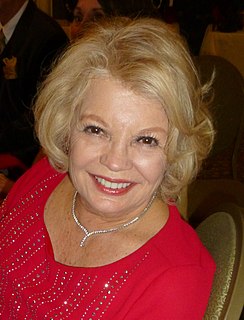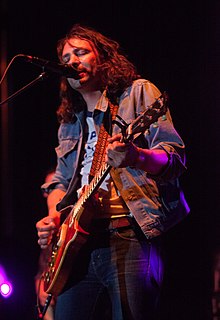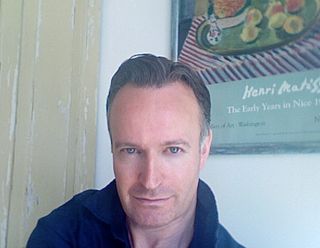A Quote by Eudora Welty
Writing fiction has developed in me an abiding respect for the unknown in a human lifetime and a sense of where to look for the threads, how to follow, how to connect, find in the thick of the tangle what clear line persists.
Related Quotes
In a sense, journalism can be both helpful and detrimental to a writer of fiction because the kind of writing you need to do as a journalist is so different. It has to be clear, unambiguous, concise, and as a writer often you are trying to do things that are more ambiguous. I find that writing fiction is often an antidote to reading and writing too much journalism.
The process of writing fiction is totally unconscious. It comes from what you are learning, as you live, from within. For me, all writing is a process of discovery. We are looking for the meaning of life. No matter where you are, there are conflicts and dramas everywhere. It is the process of what it means to be a human being; how you react and are reacted upon, these inward and outer pressures. If you are writing with a direct cause in mind, you are writing propaganda. It's fatal for a fiction writer.
It was as if thousands and thousands of little roots and threads of consciousness in him and her had grown together into a tangled mass, till they could crowd no more, and the plant was dying. Now quietly, subtly, she was unravelling the tangle of his consciousness and hers, breaking the threads gently, one by one, with patience and impatience to get clear.
I don't want to write poems that are just really clear about how I'm aware of all the traps involved in writing poetry; I don't want to write fiction that's about the irresponsibility of writing fiction and I've thrown out a lot of writing that I think was ultimately tainted by that kind of self-awareness.
I think our lives are connected by threads. We're weaving our own quilts as we go along and it has been my experience that there are so many threads that connect people. Invisible threads, strong threads, sparkling threads, but I think there is so much interconnectivity between people and I acknowledge that and I see it all the time. I think some of that is divine.
Writing is how I find out what I believe and what I care most deeply about. It's how I sort through the mess of daily experience and try to make sense of it - by stepping out of it for a while. Writing is how I train a searchlight into the darker corners of my self and the world, as I'm sure I'd never do otherwise.
I'm not interested in writers who are overcome with certainty, with single-mindedness, or with a sense of how consistent and morally upstanding they are. My writers are in the thick of it and they seek the truth, rather than embody it, and sometimes they find truths that don't sit palatably or easily together. That's life. That's personality. And that's writing.
Historical grammar is a study of how, say, modern English developed from Middle English, and how that developed from Early and Old English, and how that developed from Germanic, and that developed from what's called Proto-Indo-European, a source system that nobody speaks, so you have to try to reconstruct it.






































